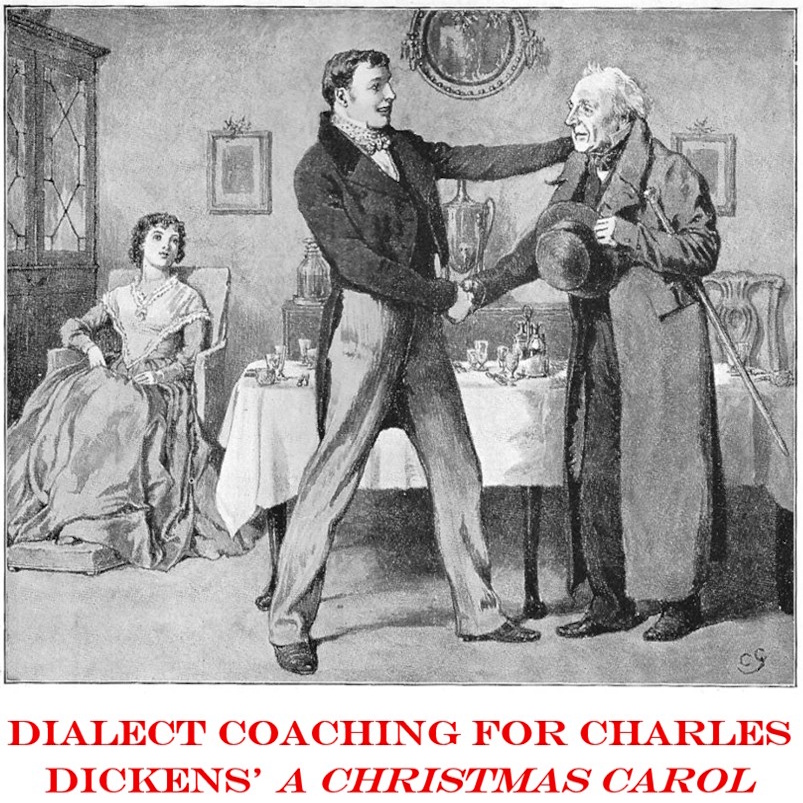South Africa 46
Listen to South Africa 46, a 74-year-old woman from the Western Cape, South Africa. Click or tap the triangle-shaped play button to hear the subject.
Both as a courtesy and to comply with copyright law, please remember to credit IDEA for direct or indirect use of samples. IDEA is a free resource; please consider supporting us.
BIOGRAPHICAL INFORMATION
AGE: 74
DATE OF BIRTH (DD/MM/YYYY): 27/08/1943
PLACE OF BIRTH: Tsolo, Eastern Cape (Transkei at the time), but raised in the Western Cape
GENDER: female
ETHNICITY: Black/Xhosa
OCCUPATION: writer, storyteller, motivational speaker, and performer
EDUCATION: master’s degree in social work from Columbia University, New York; honorary doctorate; working on PhD
AREAS OF RESIDENCE OUTSIDE REPRESENTATIVE REGION FOR LONGER THAN SIX MONTHS:
The subject was born in a rural area in the Eastern Cape (formerly Transkei) but moved with her parents to a suburb in the Western Cape when she was 4 years old. Forced removals during the apartheid era saw the family moved to Gugulethu, a township (informal settlement or “location”) in the Western Cape. She relocated to the United States in 1981. After completing her master’s degree in social work at Columbia, she worked for the United Nations in New York for roughly 20 years. She returned to South Africa in 2004, settling in the Western Cape.
BIOGRAPHY:
As this subject, Sindiwe Magona, is a celebrity in South Africa, we have (with her permission) waived our usual policy of anonymity in order to fully describe her career. Magona has received many awards for her work, and the Order of Ikhamanga was conferred on her by the State President in recognition of her literary and humanitarian contributions in 2011. She holds honorary doctorates from Hartwick College, Oneonta, New York, United States; and Rhodes University, South Africa. She continues to work as a writer, storyteller, motivational speaker, educator, and performer.
Please see her Wikipedia profile.
Works by Sindiwe Magona:
- Magona, S. (2011). Living, Loving, and Lying Awake at Night. New African Books.
- Magona, S. (1998). Forced to Grow. New York: Interlink Books.
- Magona, S. (2001). Push-push! And Other Stories. Boston: Beacon Press.
- Magona, S. (2016). Mother to Mother Englische Lektüre ab dem 7. Lernjahr. Stuttgart: Klett.
- Magona, S., & Bouma, P. (2009). The Best Meal Ever. Cape Town (South Africa): Tafelberg.
- Magona, S. (2009). Please, Take Photographs. Athlone, South Africa: Modjaji Books.
- Magona, S., & Blomkamp, N. (2014). The Woman on the Moon. Cape Town, South Africa: David Philip.
The text used in our recordings of scripted speech can be found by clicking here.
RECORDED BY: Nadia Barnard
DATE OF RECORDING (DD/MM/YYYY): 02/03/2018
PHONETIC TRANSCRIPTION OF SCRIPTED SPEECH: N/A
TRANSCRIBED BY: N/A
DATE OF TRANSCRIPTION (DD/MM/YYYY): N/A
ORTHOGRAPHIC TRANSCRIPTION OF UNSCRIPTED SPEECH:
Yo! Where do I start? You know, when people ask me about my life, what, what made me me, I often joke, but there’s th- some truth in it: “I was very lucky; when I was 23, I was dumped by a man.” I say that because if my husband had not walked away leaving me pregnant, not with the first, not with the second, but with the third child, I don’t think I would be the woman I am today.
I had no dreams, no big dreams, no ambitions, except to go and be a good makoti – new wife – to his parents out in the rural areas of Matatiele. So that although she found me in town –a, a town woman always supposed to be loose in the rural areas — I, I wanted to show them I was a good person. That’s my big ambition. Man walks away; I’m sitting there; then I think, “How the hell did I end up in this mess?” But I had the great fortune, seriously speaking, of having had parents who took their role of parenting seriously. And my being a single parent — something I never, never saw coming, for me, way back then, a woman without a child [subject meant “husband”] — like everybody else in the, in the community, there was something wrong with the woman, either caught red-handed with another man or she was such a disgustingly lazy person: never cook, never clean. The poor man had to leave!
There I was: I hadn’t done this, or B, or not done C and D. I was that horrible! A husbandless woman of marriageable age with three children. That didn’t for me mean I would also abandon my children. It was clear: I had to be twice the parent I had believed I was going to be. These poor children had no father! I had to be both, so I needed to work, and work hard.
I – by this time, I was in domestic work – I did four years of domestic work, but you know what, I vowed: I wouldn’t die a domestic worker. I vowed: My, my two girls would never be domestic workers, and my son would never be a garden boy. And I – you know, that opened a whole other way of thinking, managing my life, planning, looking ahead, and, and I never looked back.
So I started studying by correspondence. I did my Matric by correspondence; I did A-levels, University of London — correspondence, did UNISA BA – correspondence; then I was lucky: I got a scholarship, went and did master’s at Columbia University, then landed a job at the UN. The last 24 years of my working life, I, I was in New York working for the UN. So my life changed. And for a single parent at that point in South Africa, to end up with three kids, each of whom has at least one university degree — for me that was success multiplied.
I usually brag when I give a talk, and peop- especially if I think they might fall asleep on me [subject laughs], I then say, “You know, it may be wrong — this was more than a decade ago — according to the Guinness Book of Record, the longest tongue twister in the world is in isiXhosa!” And I say, “Close your eyes. I’ll say it twice; it sounds better with your eyes closed.” [Subject continues to speak in isiXhosa] Then everybody is wide awake then! [Subject laughs and continues to speak in isiXhosa] That, I got that from the Guinness Book of Record, way back in 1976: the longest tongue twister in the world is in isiXhosa. And that’s it! It’s a children’s thing: [subject continues to talk in isiXhosa] is a skunk, the skunk of [subject continues to speak in isiXhosa] climbed up the mountain [subject continues to speak in isiXhosa] and frolicked on the grass and [subject continues to speak in isiXhosa] and broke his neck. How is that for sense! [Subject laughs and continues to speak in isiXhosa.]
Ja, that’s the famous q-click that even Princess Margaret could say. There was a time, the q-click, Mama Afrika, uhm, Miriam Makeba made it famous: “The Click Song.” [Subject continues to speak in isiXhosa.]
I can’t sing to save my life! [Subject laughs.] That, that song, she justified, again it was – it’s a children’s play thing. [Subject continues to speak in isiXhosa. See below for text and translation] We grew up saying that! She took it and made it into a song. The doctor of the road, if you are lost, the doctor of – of the road is a beetle. He went this way, did that beetle; he went this way, did that beetle. You, you know, er, er, people herding cattle, if they miss one, they take this and say which way, and then the, the beetle will go this way; then they think they’re pointing- – hey! [Subject laughs.] It’s, it’s lore, folklore [Subject laughs.] The, the, the beetle will point you in the right way, so that’s why the, the, the doctor of the road, which way you must go if you are lost. [Subject continues to speak in isiXhosa.] When you are desperate, you, you’ll trust even a beetle! [Subject laughs.] When you are lost. Again like that tongue-twister, it’s just a, a children’s thing, but the practice of [subject continues to speak in isiXhosa] like, you know, which way, and [subject continues to speak in isiXhosa] the other name for [subject continues to speak in isiXhosa] is to look around, because the — it goes like, the beetle goes like [subject continues to speak in isiXhosa] “Which way should I go?”
Xhosa borrowed clicks from Abatwa, the Bushmen, and the, and the — we have only the three: the [subject demonstrates in isiXhosa] the q-click; the [subject demonstrates in isiXhosa] the lateral, x; and the [subject demonstrates in isiXhosa] er, front dental. As [subject continues to speak in isiXhosa] “earrings” [subject continues to speak in isiXhosa]: “It is small.” You know, variations, because you put an, an, a nasal sound like an “n,” then it changes; you put a “g” [subject demonstrates in isiXhosa], you know? But is, it’s the c-click that can be clean [subject demonstrates in isiXhosa] or [subject demonstrates in isiXhosa]: that kind of thing. [Subject demonstrates in isiXhosa and then laughs.]
TRANSCRIBED BY: Nadia Barnard
DATE OF TRANSCRIPTION (DD/MM/YYYY): 13/03/2018
PHONETIC TRANSCRIPTION OF UNSCRIPTED SPEECH: N/A
TRANSCRIBED BY: N/A
DATE OF TRANSCRIPTION (DD/MM/YYYY): N/A
SCHOLARLY COMMENTARY:
For more details on the famous click sounds of isiXhosa, see Non-Pulmonics/Clicks.
Text of “The Click Song”:
Qongqothwane
Knock-knock Beetle
(The Click Song or Wedding Song)
(isiXhosa)
Igqirha lendlela
Nguqongqothwane,
Igqirha lendlela
nguqongqothwane
Igqirha lendlela,
nguqongqothwane
Sebeqabele egqith’ apha
Nguqongqothwane
Sebeqabele egqith’ apha
Nguqongqothwane
Sebeqabele egqith’ apha
nguqongqothwane
(English)
The witch doctor of the road
He’s the knock-knock beetle,
The witch doctor of the road
He’s the knock-knock beetle,
The witch doctor of the road
He’s the knock-knock beetle.
He passed by here
He’s the knock-knock beetle,
He passed by here
He’s the knock-knock beetle,
He passed by here
He’s the knock-knock beetle.
COMMENTARY BY: Nadia Barnard
DATE OF COMMENTARY (DD/MM/YYYY): 17/03/2018
The archive provides:
- Recordings of accent/dialect speakers from the region you select.
- Text of the speakers’ biographical details.
- Scholarly commentary and analysis in some cases.
- In most cases, an orthographic transcription of the speakers’ unscripted speech. In a small number of cases, you will also find a narrow phonetic transcription of the sample (see Phonetic Transcriptions for a complete list). The recordings average four minutes in length and feature both the reading of one of two standard passages, and some unscripted speech. The two passages are Comma Gets a Cure (currently our standard passage) and The Rainbow Passage (used in our earliest recordings).
For instructional materials or coaching in the accents and dialects represented here, please go to Other Dialect Services.
 IDEA: International Dialects of English Archive
IDEA: International Dialects of English Archive



